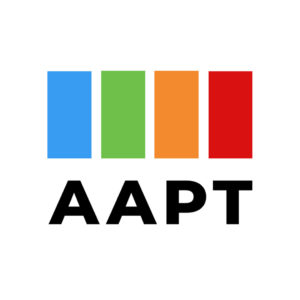CFP: AAPT Studies v.9

Call for Papers
Volume 9
Writing in Philosophy: Pedagogy and Practice
Edited by
Sarah K. Donovan and Renée Smith
American Association of Philosophy Teachers Studies in Pedagogy is a peer-reviewed annual journal dedicated to publishing thematically focused volumes of original works on teaching and learning in philosophy.
The aim of this volume of Studies in Pedagogy is to explore the spectrum of writing pedagogy in philosophy courses and to think creatively about types of instruction, assignments, and feedback that will improve students’ writing. Instructors use a variety of both formal and informal writing assignments in philosophy courses, and the degree of instruction, feedback, and opportunities to improve student writing varies greatly.
Potential topics include but are definitely not limited to the following:
- How can instructors create meaningful writing assignments? Why do philosophers ask students to write papers? What are the essential student learning goals associated with writing in philosophy? What can and can’t writing measure?
- How detailed should a rubric for an undergraduate philosophy writing assignment be? How can rubrics be used to effectively provide feedback to students?
- What types of papers (argumentative, research, dialogues, etc.) should students write in philosophy courses? What writing other than complete essays (journals, reflections, blogs, etc.) should philosophy students be doing? When?
- Why is some “How To” writing instruction better than others? What obstacles might students face as they develop writing skills and what are the better ways to help students overcome them? How can instructors model good writing practices?
- How should institution type, student demographics, regional differences, course level and type (general education or major-specific courses), etc. influence which writing pedagogy is used?
- What do professors need to know about themselves and their students to be attuned to diversity, equity, inclusion, and accessibility as they teach writing?
- Which types of feedback (peer evaluation, self-correction, teacher feedback, or other) may be used most effectively? Which modes of feedback (line-by-line versus one big summary comment, “nice” versus blunt, video versus marginalia, etc.) are especially effective for particular students and/or particular types of assignments?
- What are effective means of cultivating better writers while also managing teachers’ workload?
We expect final articles to be between 4000-9000 words, but are open to discussions regarding longer or shorter works. Submissions should be prepared for anonymous review. Final papers need to follow Chicago Manual of Style 17th ed. guidelines, and we recommend that initial submissions do as well.
Paper Submission Deadline: Monday, February 13, 2023
- To submit an essay, go to https://aaptstudies.org/submissions
- Direct inquiries about this call or volume 9 to sdonovan@wagner.edu or rsmith@coastal.edu
- Direct inquiries about AAPT Studies in Pedagogy to editor@aaptstudies.org
Printer-friendly version of AAPT-Studies-CFP9
Please distribute widely.
